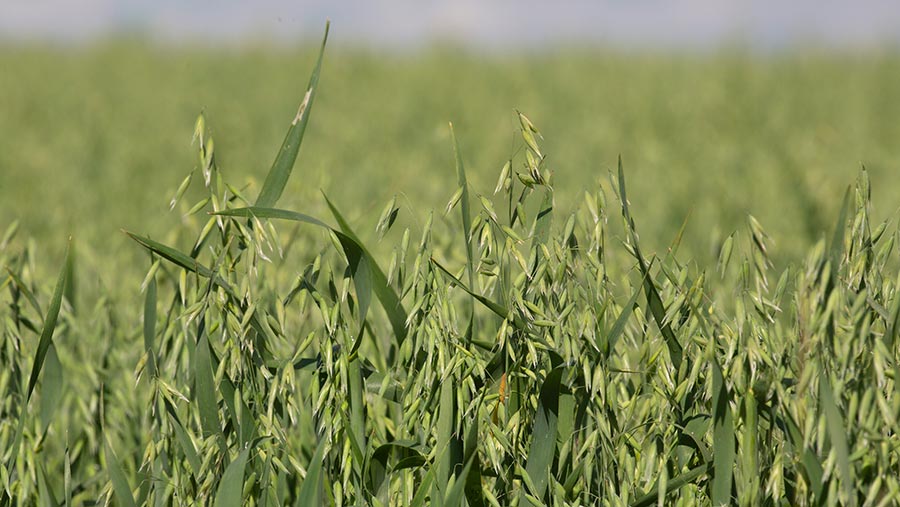Opinion: Better to learn from each other than fight in factions
 © Tim Scrivener
© Tim Scrivener Not so long ago I was sat high above what looked like a heavy crop of grass. Had I been cutting silage this would have been good news.
As it was, I was attempting to fill the combine tank with oats.
Sometimes that is the reality for organic farms. This year’s mix of conditions meant the spring oats were overtaken by the abundance of other species in the field.
From a commercial point of view this may seem like a negative, but from a biodiversity perspective it is probably a positive (we did get some oats, too).
See also: Opinion – Welsh farmers need more detail on Sustainable Farming Scheme
We all fret about yield, profit and loss, and the balance sheet, but for a long time that mix has been influenced as much by the subsidy count as the performance of the farming activity.
The subsidy schemes are now changing, with the aim of shaping farms for sustainability in the years to come.
Low carbon emissions, increased biodiversity and improved habitat are the critical elements that will make up the subsidy portion of the income, or even provide farmers with tradeable “credits” of one form or another.
In this new world, everyone is up for a rebrand. You’d have a job to count the number of “sustainable”, “regenerative” and “agroecological” prefixes that have appeared as the reality of the post-EU subsidy situation has emerged.
These all need some level of definition and there is a need to concentrate and dig around to be able to interpret exactly what “regen agricultural” or some other formulation is driving at.
As I write, we’re in “Organic September”, the Soil Association’s way of bringing attention to the organic approach to farming through awareness-raising and campaigning.
Organic is a more established term than the more recent “regen” and “sustainable”, and is supported by a long-established body of evidence.
Farming organically produces different outcomes. Roger Kerr, chief executive of Organic Farmers & Growers (OF&G), highlighted that the prohibition of synthetic agrichemicals on organic farms produces 34% more biodiversity than non-organic farms and that recent Defra studies demonstrated a five-times-greater biodiversity value on organic than on non-organic farms.
It’s not always seen as positive, though, with the BBC recently criticised for a “pro-organic bias” by the Science for Sustainable Agriculture think tank.
Its view was that BBC output used unsubstantiated statements about organic farming and diminished other types of farming.
When I read about Science for Sustainable Agriculture, I noted that some of its work is at odds with the organic approach. For example, a recent article took aim at the “zero tolerance” of gene editing.
I don’t see a wholesale change of conventional to organic any time soon, and I also don’t detect the adoption of gene-edited crops within the organic system. I do see multiple channels of evolution in farming.
There is enormous learning and innovation in play across the board whether it is regenerative, sustainable or organic. That is an opportunity.
If we are collectively bold enough, we will be open to learn from the innovation wherever it occurs and we can evolve where necessary.
Where the innovation jars too much, it will be left alone or argued against. It is a tricky balance to achieve.
For my part I’ve recently joined an agricultural tech circle that showcases tech developments in farming. I’m hoping to learn a lot.

